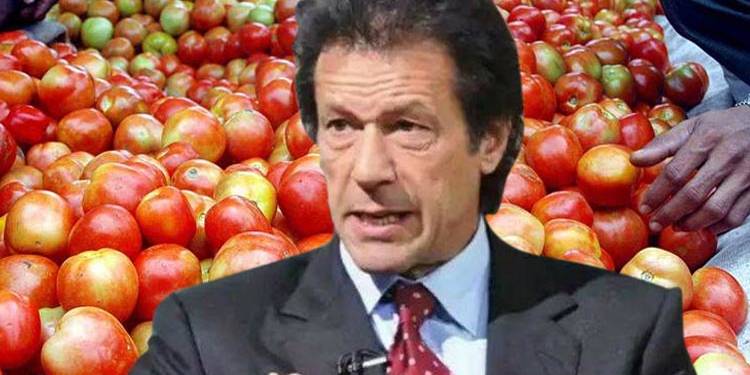Surrendering against India’s hawkish diplomacy, Pakistan is again on its knees, the Pakistan government has admitted its mistake of suspending trade with India. It blamed the prevailing price hike, particularly the food inflation, emanated from the suspension of trade with India while India had stripped the cash-strapped country of its MFN status and has imposed 200 per cent import on its products. Cornering India in the world of trade and diplomacy still remains a distant dream of Pakistan.
Attributing the prevailing price hike to suspension of trade with India, Pakistan’s Minister for Economic Affairs Hammad Azhar said the prevailing price hike, particularly the food inflation, emanated from the suspension of trade with India.
He said the centre was taking up the matter with provincial governments for setting up of Sasta Bazaars and effective use of the magistracy system to ensure relief to the public. He said the inflation would start going down in January-February. Pakistan government announced that it is considering buying tomatoes from Iran after its supply was hit by the lack of import from India and the prices of the fruit skyrocketed between Rs 180 per kg to Rs 300 per kg in several parts of the country.
The restrictions imposed by India in the backdrop of the February 14 Pulwama attack in which 40 CRPF troopers were killed in a suicide bombing claimed by the Pakistan-based terror group Jaish-e-Mohammed have affected the flow of bilateral trade.
Pakistan also has suspended trade with India after New Delhi revoked special status given to Jammu and Kashmir which has contributed to rising prices of vegetables in the domestic market. A day later, India slapped 200 per cent import duty on Pakistani goods. The supply gap has also been partially supported by the lack of imports from Wagah border from India, the media report said.
As India decided to abrogate Article 370 and bifurcating the state of J&K into two Union Territories, Pakistan went furious and took inconsistent decisions which are creating more problems to the country’s economy.
In its childish and desperate attempts only to garner attention, Pakistan downgraded its diplomatic ties with India and also suspended bilateral trade.
Not only this, in order to further diminish any chance of survival of its economy, Pakistan went to the extent of stopping rail and bus services between the two countries. It even banned Indian films and advertisements featuring Indian artists. With Pakistan failing to internationalise the issue despite its relentless efforts, it turned even more hostile and its top ministers went on to make irresponsible nuclear threats. Notably, Pakistan quickly resumed the medicine imports from India as it was seemingly, disastrous for the country as it heavily depends on the life saving and other drugs from India.
However, Pakistan’s foolish politicians are in no hurry to understand the plight of their economy as Prime Minister Imran Khan’s Finance Adviser Abdul Hafeez Sheikh ignorantly told a group of reporters that tomatoes were being sold as low as Rs 17 per kg in Karachi’s vegetable markets. “In Karachi, in the sabzi mandi (produce market), tomatoes are being sold for Rs 17 per kg,” he was quoted as saying by the report.
When some of the reporters present at the scene told him that tomatoes were, in fact, being sold at Rs 240 per kg, he refuted their comment, saying people were lying.
A journalist said: “Which sabzi mandi, sir?” To which, Sheikh responded: “You go and check it out yourself!”
Pakistan has no long term progress options other than to stop exporting terrorism in India in order to survive as it is now an open secret that its trade cannot flourish without the help from India.




























